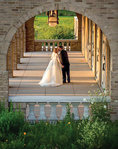Clear, 54° F
Christine Garceau photographed more than 300 weddings in a 20-year period prior to turning her attention to training future professional photographers as an associate professor of photography at …
This item is available in full to subscribers.
The Powell Tribune has expanded its online content. To continue reading, you will need to either log in to your subscriber account, or purchase a subscription.
If you are a current print subscriber, you can set up a free web account by clicking here.
If you already have a web account, but need to reset it, you can do so by clicking here.
If you would like to purchase a subscription click here.
Please log in to continue |
|



Christine Garceau photographed more than 300 weddings in a 20-year period prior to turning her attention to training future professional photographers as an associate professor of photography at Northwest College. She has seen it all, from the perfect wedding to absolute disasters.
She knows how to make wedding memories great, but maybe even more importantly, how to salvage those memories when Murphy’s Law kicks in.
Her top tip for avoiding a mistake you’ll live with for the rest of your lives? Hire a pro.
“I know a lot of people are trying to save money. They’re looking for the best deal,” she said.
But how good of a deal was it if the photographs are bad? Worse things can happen as well. Can you count on that friend from high school or Uncle Ray to be there no matter what happens? Do they have several cameras, in case there’s mechanical failure? Do they have a network behind them if tragedy occurs?
“After the switch to digital [photography], many people came to me who didn’t initially hire me. They asked me to try to save their wedding pictures because they had a cousin who just got a new camera for Christmas to take the pictures, or somebody just volunteered to do it. The most important thing is to hire a professional photographer, because after the wedding’s over the dress is in a box, the tuxedos are back at the rental place, the limo is gone, the cake is gone. But the photos last forever.”
Have a contingency plan. What happens if your photographer has an emergency? Life happens. When it does, an emergency can throw your plan to the wind. Garceau remembers when an alum of NWC had scheduled a busy season of weddings. When she died suddenly and tragically, there was a network of photographers trained at the school to pick up the jobs. That’s one of the benefits of hiring a pro.
“That’s one of the advantages of having a professional with a degree in photography. They have a network of colleagues to help when needed,” Garceau said.
Most pros will use the deposit to hire an assistant. In the worst case scenario – say the lead photographer has a medical emergency while at the wedding – the assistant can take the lead. And a pro won’t arrive with one camera, hoping it makes it through the event. They’ve been trained to be ready for every emergency to seamlessly continue their coverage, she said.
It starts with a contract. A pro will have back-up photographers identified who have agreed to step in should they be in a car accident, fall ill or worse. And their tools of the trade won’t be an afterthought.
As you look to hire a photographer, make sure you have seen examples of their work. Garceau also suggests asking for references from the photographer’s past weddings. “If a photographer isn’t willing to let you contact past clients to get their opinion, I’d be a little concerned.”
Budgeting for a photographer is tough. Some couples won’t have the funds available to hire the top photographer available. But she points out when looking for a photographer within your budget, remember more time is spent in post production of your memories than actually covering the event.
There are a plethora of other issues to consider, she points out, but one of the most important tips is what to do after the wedding. “Get professional prints made,” she said.
That thumb drive of images could get lost. Your cloud company could go out of business. Even after having an album produced, a fire could take away all your possessions. Make duplicates and keep them in a safe place, “maybe in a safety deposit box,” she said.
Above all, don’t be afraid to ask questions when hiring a photographer. If they don’t have the right answers, move on to the next. Thanks to NWC, there are many well-trained professionals in the Big Horn Basin.